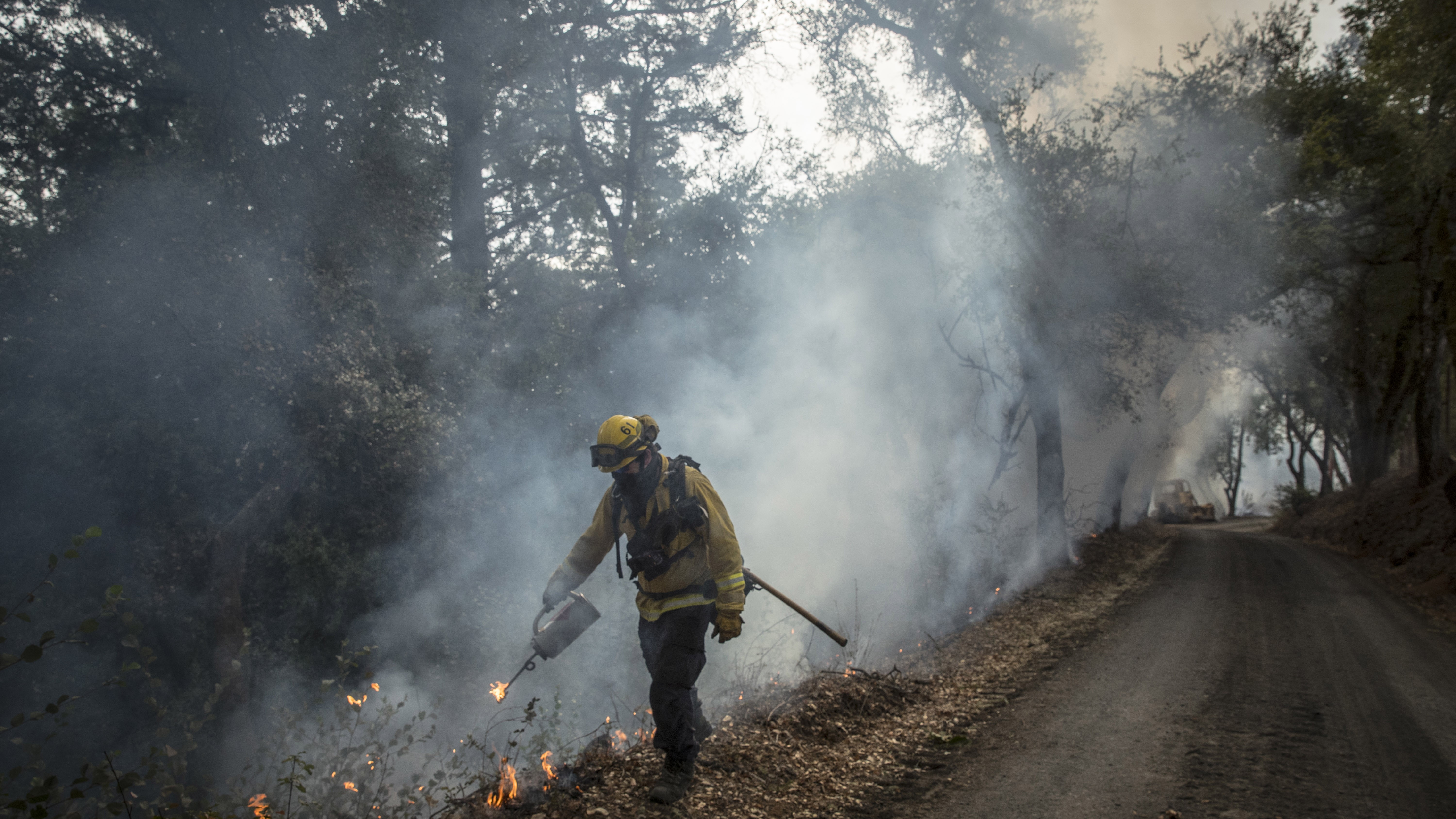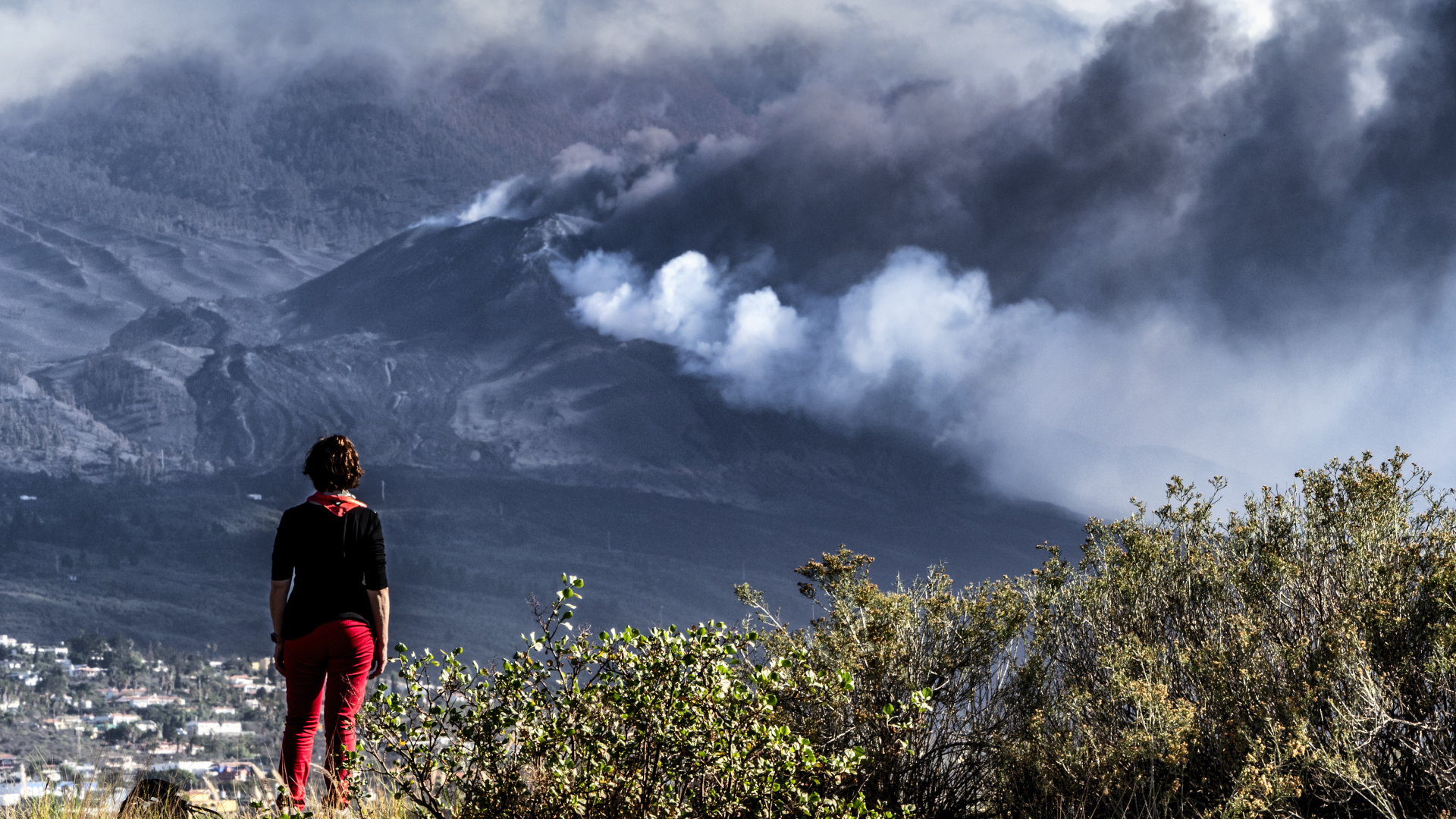“It was really disturbing" – despite everything, people still leave campfires burning in the Colorado backcountry
Two hikers in Steamboat Springs discovered the abandoned campfire burning off a hiking trail

Colorado had an unusually wet summer this year, which hampered hiking season at times but left many breathing a sigh of relief that wildfire season may not be so bad. Back in July, Denver had already seen 11.66 inches of precipitation – nearly twice normal levels and a rainy summer from the front range to mountains ensued, which did indeed dampen the frequency, size and intensity of wildfires in the state and kept wildfire smoke to a minimum, compared to recent years.
The Centennial State, however, isn't out of the woods by any means. A wildfire and smoke map from The Coloradoan shows a dozen wildfires burning across the state at the time of writing. The Iron Wildfire north of Craig is burning at over 7,000 acres and the Lowline Fire in Gunnison is showing an estimated cost of $7.65 million. Wildfires are still very much an insidious and costly part of life in Colorado, and that's what makes it all the more shocking that campers are still leaving campfires unattended – but that's exactly what's happening.
According to a report in the Steamboat Pilot & Today, two hikers cut their fall hike short on Sunday after coming across an abandoned campfire burning just off the trail, about three miles in to the Lower Bear Trail in Steamboat.
“Somebody had this big fire the night before and they put large diameter logs on it and they had a big tree and they were burning one end of it and that is what was still on fire,” says hiker Buz Cotton in the article, adding that it didn't appear any attempt had been made to extinguish the fire.

Cotton and his wife called 911, but after the dispatcher had difficulty understanding their location, they were unsure whether help was coming, so the pair took matters into their own hands and spent an hour ferrying water in their water bottles from a small creek in an attempt to douse the flames.
“It was really disturbing to us because there was a little squall moving in and the wind was picking up and it wouldn’t have taken much for that to just take off,” says Cotton, adding “I just don’t understand how anybody could do that.”
Area firefighters were tied up with the Iron Fire when the call came in, but two officials were able to make it to the scene later that same day and confirm that the fire was extinguished. There were no personal items at the campsite to identify who might be responsible, though officials did find a box of matches from a steakhouse located in New Jersey at the scene.
All the latest inspiration, tips and guides to help you plan your next Advnture!
Campfire safety
According to the National Parks Service, nearly 85 percent of all wildfires in the US are human-caused. All hikers and campers recreating in the backcountry are reminded to observe campfire safety protocols. Build your campfire properly, never leave it unattended and always put it out completely. To put the campfire out properly, pour your bucket of water over the flames, stir the fire area with your shovel to soak the remaining embers and pour water on it once again. Finally, feel the campfire area with the back of your hand to ensure nothing is still smouldering. Learn more in our article on campfire safety.
Julia Clarke is a staff writer for Advnture.com and the author of the book Restorative Yoga for Beginners. She loves to explore mountains on foot, bike, skis and belay and then recover on the the yoga mat. Julia graduated with a degree in journalism in 2004 and spent eight years working as a radio presenter in Kansas City, Vermont, Boston and New York City before discovering the joys of the Rocky Mountains. She then detoured west to Colorado and enjoyed 11 years teaching yoga in Vail before returning to her hometown of Glasgow, Scotland in 2020 to focus on family and writing.

